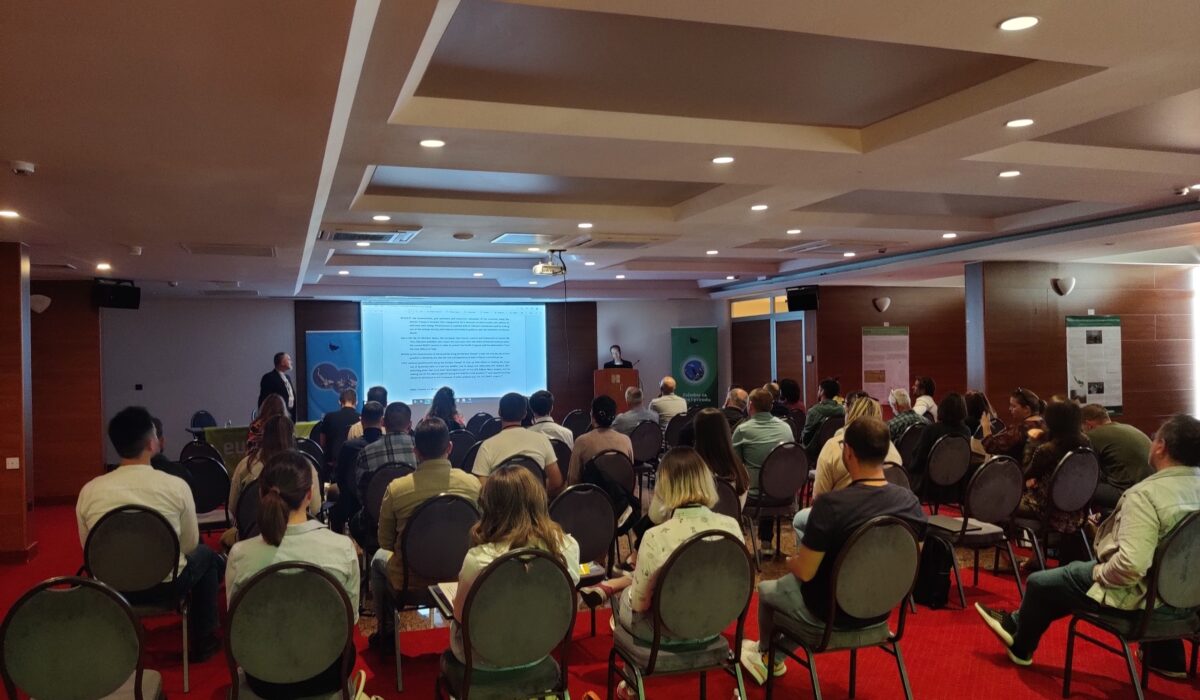Dr Teresa Lappe-Osthege presented the preliminary findings of her research at the 4th Adriatic Flyway Conference (25th to 29th April 2022) in Zadar, Croatia, and reveals that the lack of data and political will in the Western Balkans and the EU pose significant challenges to addressing bird crime dynamics in South Eastern Europe.

Europe is no exception to global trends of rising biodiversity loss and increasing environmental pressures, even if recent policy processes have been slow to shift the focus onto the processes taking place in Europe itself. A key challenge to placing the drivers of biodiversity loss within Europe in the spotlight has been the lack of reliable data – and, often, the lack of political will to address it.
The 4th Adriatic Flyway Conference, which took place in Zadar (Croatia) from 25th to 29th April, provided a much-needed platform for regional conservationists to share novel data on the decline of migratory birds along one of the key flyways between Africa and Europe. Although numbers differ from country to country, the threats to migratory bird populations are similar: illegal killing, poisoning and trade of birds are still widespread across South Eastern Europe.
In 2018, at the previous Adriatic Flyway Conference in Fruška Gora (Serbia), the lack of data on the effects that these types of bird crimes have on bird populations was much more pronounced. There was a realisation that in some countries along the flyway illegal bird trade was not believed to be an issue; not because it did not exist, but because the authorities did not look in the right places to detect, track and tackle it. In recent years, local BirdLife partners or other environmental NGOs have taken it upon themselves to search for such cases. And they found them – as in Slovenia where DOPPS recently published a comprehensive report on illegal killing and trade of birds in the country. This is a great achievement as it illustrates that a) endemic (non-threatened) European species are traded, not simply exotic or rare species, and that b) this trade exists within the EU, not merely in third countries. Other regional partners, such as BIOM in Croatia, have conducted socio-economic studies into the consumption of illegally caught birds. Understanding the commercial aspects and socio-economic drivers of the illegal killing of birds – and what happens to them after they have been killed – is a fundamental step towards addressing the remaining unknowns. However, this will also require a closer look at the (un)intentional role of legally registered businesses in enabling bird crimes, something which authorities currently observe on an ad hoc basis and report in anecdotal fashion.
Despite these advances in addressing what we still do not know about the illegal killing and trade of birds in South Eastern Europe, the lack of political will to design and implement consolidated institutional responses is a severe problem across the region. NGOs are among the key stakeholder groups that are called upon to fill gaps in data, support implementation of existing environmental legislation, and hold national authorities to account; yet, they are often under-funded and under-staffed. Especially in cases where national authorities may not want to be confronted with data on bird crimes as it would force them to spring into action, it will require more coordinated international pressures to place bird crimes on the political agendas, both nationally and regionally.

International agreements, such as the Convention on the Conservation of Migratory Species of Wild Animals, or pan-European associations of important stakeholder groups, such as the European Federation for Hunting and Conservation (FACE), have access to high-level political channels and can play important roles in making bird crime a policy priority. They have the ability to support the regional and local NGOs by ensuring that their call to action is heard in EU institutions and national governments. It is promising that both were represented at the Adriatic Flyway Conference in Zadar.
Although many unknowns remain, especially about the demand and supply dynamics of the illegal bird trade into and within the EU, there is significant progress along the Adriatic flyway to address them. Moving forward, the key challenge will be to translate what we do know into political action.

